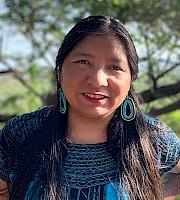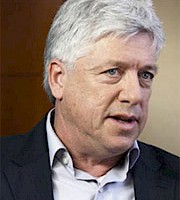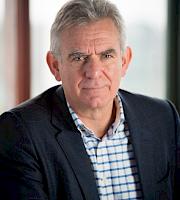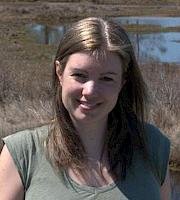
Two tiger cubs Panthera tigris playing © Souvik Kundu / WWF
i
our governance
TRAFFIC's current board of trustees was established in 2017 in line with our Articles of Association.
The TRAFFIC International Board of Trustees is responsible for establishing the strategic goals and approach and for TRAFFIC's work worldwide, advising on implementation and ensuring accountability for use of financial and other resources.
our board of trustees

Pam Davis
Pam Davis is President for Europe Global Philanthropic, a global fundraising and strategy practice, with experience in building strategies and securing funding for Higher Education, Conservation, Climate Action and Music.
Prior to joining Global Philanthropic, she led her own consulting company and was Director of Development for the Royal Society for the Protection of Birds (RSPB), creating their first high-value fundraising programme and their first ethical gifts acceptance policy and procedure. Earlier, she served as Director of Development at ARK and Head of Fundraising at the Cambridge University Development Office, where she led the fundraising team for the University’s historic 800th Anniversary Campaign. Pam founded and subsequently taught the MBA Fundraising course at the University of Cambridge Judge Business School and is a guest lecturer on strategic fundraising for the MPhil Conservation Leadership course at the Cambridge Conservation Campus.

Viviana Figueroa
Viviana Figueroa is an international public lawyer, with a PhD in law in Agricultural and Mining Law from the University of Buenos Aires.
As a young activist, she served as the President of the Association of Indigenous Argentinian Youth, while connecting with the global Indigenous women’s movement as a member of the International Indigenous Women Biodiversity Network and focusing on the rights of Indigenous children. From 2009 to 2018, she served as an Associate Programme Officer on Traditional Knowledge at the Convention on Biological Diversity. She is currently a member of several Indigenous Peoples organizations and consults internationally on issues related to traditional knowledge and Indigenous Peoples’ rights.

Mark Halle (Chair)
Mark Halle has devoted his entire career to environment and sustainable development, beginning with five years in the United Nations Environment Programme’s Policy Planning Division.
He then spent four years in WWF-International’s Conservation Division, with responsibility for building its programmes in China. There followed fourteen years at IUCN, first in the Conservation for Development Centre (integrated into IUCN as the Field Operations Division), then first as Director of Development and, finally, as Director of Policy and Partnerships. He left IUCN to establish the International Institute for Sustainable Development (Europe) which he directed until retirement in 2016 and where he remains a Senior Fellow. Mark writes and lectures on the subject of sustainable development and sits on the board of several organisations in the field of sustainable development. Mark is a citizen of Switzerland, Italy and the US.

Jon Hutton
Jon Hutton is Executive Director for Global Conservation Impact at WWF International. For the five years before that he was Executive Director of the Luc Hoffmann Institute, also in Switzerland.
He joined the Institute after spending 10 years as a Director in UNEP leading the World Conservation Monitoring Centre (UNEP-WCMC) in Cambridge, UK. An ecologist who trained for a first degree at the University of Cambridge followed by a doctorate in African wildlife management at the University of Zimbabwe, Jon worked in Africa for 25 years. He has worked in government, NGOs and the private sector holding a range of leadership positions directly linked to nature, natural resources and rural development. Jon’s interests and experience span community and rights-based natural resource management; the relationship between conservation and poverty; the sustainable use of natural resources; wildlife management/policy; and innovation and knowledge management. In recognition of his academic interests he was elected Professor of Sustainable Resource Management at the University of Kent in 2007 and a Fellow of Hughes Hall College, Cambridge in 2017.

Aban Marker Kabraji
Ms Kabraji served as the Regional Director for IUCN Asia and Director of the IUCN Regional Hub for Asia-Oceania. She oversaw and maintained an active presence in 15 countries, and was responsible for more than 70 wide-ranging environmental initiatives.
With more than 30 years of experience, her leadership has been instrumental in bringing awareness to vital conservation issues such as gender, culture, and sovereignty. In 2018, she was a recipient of the Tamgha-i-Imtiaz Pakistan Civil Award in recognition of her outstanding contributions to conservation and development in Pakistan. Ms Kabraji serves as Co-Chair of the Mangroves for the Future initiative. She is also a member of the Advisory Committee of the United Nations Centre for Regional Development and is on the Board of Trustees, TRAFFIC International. She led the External Review of the International Institute for Environment and Development (2011–2012) and sits on the Green Economy Coalition Steering Group. Recently, Ms Kabraji was appointed Team Leader of the Special Policy Study on the “Green Belt and Road Initiative and 2030 Agenda for Sustainable Development” under the China Council for International Cooperation on Environment and Development. She was also appointed by the Jeju Special Self-Governing Province to sit on the Global Environmental Advisory Committee for Jeju Province. Ms Kabraji is a member of the External Advisory Board for the Yale Global Institute of Sustainable Forestry, a McCluskey Fellow, a visiting professor with the Yale School of Forestry and Environmental Studies, and a sought-after lecturer worldwide.

Alistair Monument
As WWF International’s Conservation Impact Director in Asia Pacific, Alistair supports regional and national teams to build impactful strategies, partnerships and programmes that deliver real conservation outcomes.
Alistair was Global Forest Practice Lead with WWF from 2016-2019, prior to which he was Asia Pacific Director at Forest Stewardship Council (FSC) and founding Director of Accreditation Services International (ASI) with over 25 years of experience in sustainability across 40 countries. He holds a BA in Geography from the University of Manchester, and a MSc in Forestry and Its Relation to Land Use from the University of Oxford.

Kavita Prakash-Mani
Kavita Prakash-Mani is a conservation and sustainability expert with 25 years of experience working with civil society, companies, coalitions and consultancy across geographies from Singapore to the US.
She served as CEO of Mandai Nature in Singapore, which funds and grows wildlife and ecosystem conservation and nature-based climate solutions in Asia; Global Conservation Director and Leader of the Markets Practice at WWF International; Executive Director at Grow Asia, a World Economic Forum initiative focused on smallholder farmers; and Global Head of Food Security Agenda at Syngenta.
She has advised numerous companies on their sustainability strategies as Executive Director of SustainAbility in London. Most recently, she has founded Dragonfly Advisory, which provides advice and connections for nature conservation, nature based climate solutions and sustainable agriculture.
She has served on numerous boards, including the Integrity Council for Voluntary Carbon Markets (IC-VCM), TARA Climate Foundation, and Business Human Rights Resource Centre, as well as a member of the Unilever Sustainability Council.

Heather Sohl
Heather Sohl is the Tiger Trade Leader for WWF, leading and co-ordinating their global efforts to stop the trade in tigers as part of their goal to double tigers in the wild by 2022
Heather joined WWF in 2006, initially spending six years managing WWF-UK's work on illegal wildlife trade and wildlife policy. Subsequently, as the Chief Adviser on Wildlife, she provided strategic leadership across WWF-UK's wildlife programmes and policy work, addressing a variety of conservation threats such as human wildlife conflict, over-exploitation, poor habitat management and an absence of local community engagement for a number of the world's most iconic and threatened species, especially across Asia and Africa. Throughout, she led on the delivery of their illegal wildlife trade programmatic and policy work, research and funding. In 2018, she joined the international WWF tiger team, following her passion and expertise on tiger conservation and trade issues, to develop, resource and lead their global tiger trade strategy.
Heather received a BSc in Behavioural Science from Nottingham University and an MSc in Integrated Environmental Studies from Southampton University, in the UK. She has over 20 years of experience in wildlife conservation.

